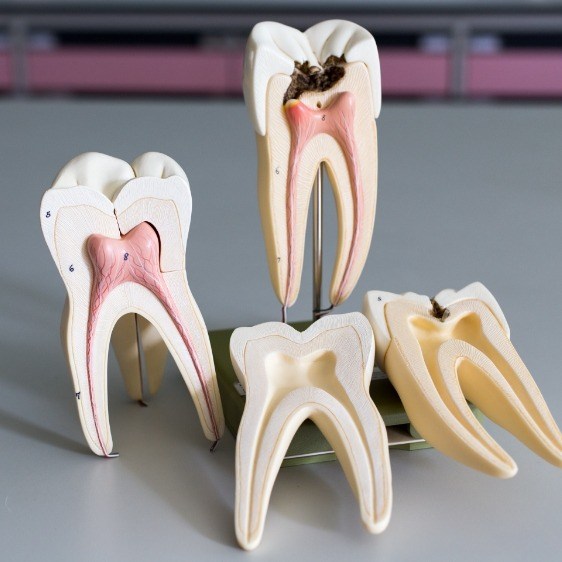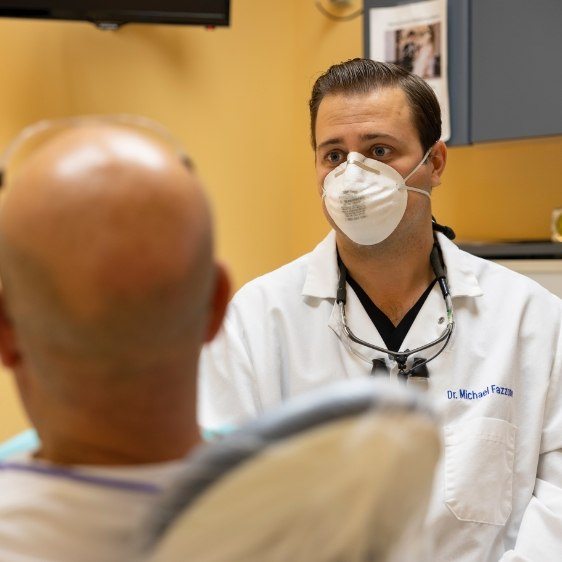Emergency Dentistry – Rocky Hill, CT
Solutions for Urgent Dental Problems
Dental accidents and injuries can happen at any time, and they’re almost always unexpected. We recommend that you enter the number for Family Dental Care of Rocky Hill right now so that when someone in your family has a dental emergency, you can call to set up an appointment with Dr. Rachel right away. We can help you find the relief you need and repair the damage done to your teeth and gums with emergency dentistry in Rocky Hill, CT.
Why Choose Family Dental Care of Rocky Hill for Emergency Dentistry?
- Same-Day Emergency Appointments
- Convenient Dental Office Location
- Highly Trained Dental Team
How to Handle Common Dental Emergencies

Dental emergencies can take many forms, and the way you respond can have a significant impact on the outcome. Fortunately, there are a number of simple steps you can take to keep the situation under control at home, and we can give you further tips when you call our dental office for an appointment. The first aid tips below cover some of the most common and well-known emergency scenarios that you might encounter involving your smile.
Toothaches

Floss gently and rinse with warm water to remove anything caught between your teeth. If the toothache is caused by an infection or another problem that you can’t resolve on your own, take some ibuprofen or another type of medication, and use a cold compress if any swelling has occurred.
Chipped/Broken Teeth

A broken tooth should be examined as soon as possible, even if it isn’t causing you any pain. Keep the tooth clean and avoid doing anything that would cause further damage (such as chewing). Use a cold compress to reduce swelling around the injury, and cover any sharp or rough edges with dental wax.
Knocked-Out Tooth

It may be possible to restore the tooth as long as you get to our dental office quickly (ideally within an hour or two) with the cells on the root still alive. Only handle the tooth by picking it up by the crown. You can preserve it by putting it back in its socket or by keeping it in a container of milk.
Lost Filling/Crown

Recover the filling or crown immediately so that you don’t lose or swallow it; we may be able to reattach it to the tooth if it’s still intact. Sugarless gum or over-the-counter dental cement can be used as temporary adhesives to hold the restoration in place so that your tooth is protected before your emergency appointment.
How to Prevent Dental Emergencies

It’s possible to lower your personal risk for dental emergencies by being proactive. For example, you can:
- Brush and floss daily to protect your smile from cavities and gum disease
- Avoid biting or chewing hard foods like popcorn kernels and peppermints
- Stop bad habits like chewing on your fingernails
- Going to find scissors instead of tearing open packaging with your teeth
- Wear a mouthguard for playing sports or for protecting your teeth from nighttime grinding
Understanding the Cost of Dental Emergencies

When a dental emergency first strikes, you’ll probably care more about stopping the pain than worrying about the cost of treatment. We can give you an estimate once we’ve determined the kind of treatment you need and the cost involved. Every emergency is different, so the cost of your emergency care won’t necessarily be the same as another patient’s. We can help you file dental insurance claims and explore financing options so that you can comfortably pay for your treatment.
Every Dental Emergency Is Different

Every case we treat is unique, so the cost of emergency dentistry in Rocky Hill varies from patient to patient. Some situations are easily treatable with a prescription mouthwash or a small filling. Other problems, however, require complex or invasive procedures, such as root canal therapy or extensive tooth repair. These services naturally cost more than simpler solutions.
You can rest assured that we will always be transparent with you about pricing. If more than one type of treatment might work for you, we will help you compare the advantages, disadvantages, and cost of each potential option.
Does Dental Insurance Cover Dental Emergencies?

Many insurance plans include one emergency exam per year. They are also likely to cover most of the services that are commonly used in treating urgent oral health problems. Depending on which services we provide, your policy may cover 50 – 80% of your bill. Our team is in-network with several major plans, and we will be happy to help you navigate your benefits. We will also file all claims on your behalf so you don’t have to worry about the paperwork.
Other Options for Making Dental Emergencies Affordable

In addition to helping you navigate your insurance, we also offer convenient third-party financing to help you afford your treatment. The application process is quick, and most patients are approved for credit. You will likely be able to choose from a range of low-interest payment plans according to what works best for your monthly budget.
If you have budgetary concerns about the cost of your care, be sure to let us know. We will do our best to respect your finances when we are recommending treatments and repairing your smile.
Taking Care of Your Smile Can Save You Money

One of the most effective ways to save money on emergency care is take precautions to minimize potential damage to your smile. Here are a few suggestions:
- Attend preventive visits. Cleanings and exams are usually 100% covered by insurance. At these exams, we can catch most dental problems well before they become serious and lead to a painful (and potentially expensive) dental emergency.
- Seek care promptly. Teeth do not heal on their own. Therefore, the longer you wait to seek care for a dental problem, the worse it is likely to become. The more your condition deteriorates, the more your treatment will cost.
- Practice good daily oral care habits. Maintaining a clean mouth, wearing a mouthguard when necessary, and taking other simple precautions can do much to prevent visits to an emergency dentist in Rocky Hill.
Root Canal Therapy

Root canals are used to treat advanced infections of the central pulp (nerves) and other soft tissues inside the tooth. The damaged tissue is removed, and the inside of the tooth is sterilized so the damage doesn’t spread any further. A root canal can save a tooth from extraction, and it stops the pain caused by an infection. The procedure involves very little discomfort thanks to modern techniques, and the tooth will be restored with a crown afterwards so that it can still function normally.
Tooth Extractions

Severe tooth decay, advanced gum disease, and extensive dental injuries may warrant a tooth extraction if there’s no viable option to salvage the tooth. Oftentimes, tooth extractions simply involve loosening the tooth with a dental elevator and removing it with forceps; surgery might be required if the tooth is trapped under the gums or if it breaks off below the gum line. Your mouth will be numbed to minimize any discomfort you experience during the extraction process.
TMJ Treatment

Do you sometimes have trouble opening or closing your jaw? Do you frequently suffer from jaw pain and headaches? These might be symptoms of a TMJ disorder, which can be diagnosed and treated by a trained dentist. Depending on the underlying cause of the pain, we may provide you with an occlusal splint that helps the jaw find a better resting position in order to take some of the stress off of the temporomandibular joints.
